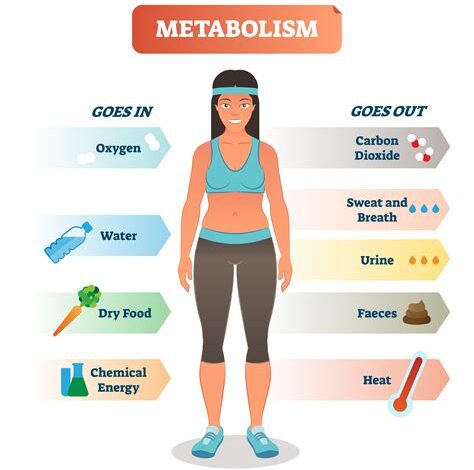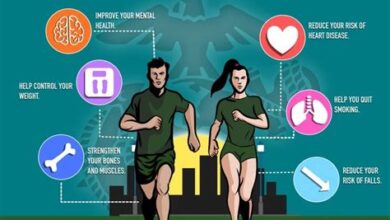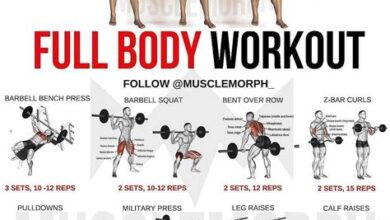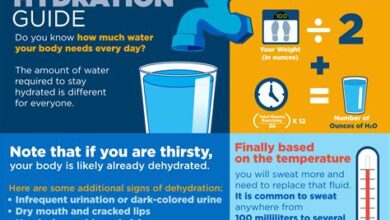Understanding Metabolism and How to Boost It

Learn about metabolism, its factors, diet and exercise roles, and lifestyle changes for improvement. Expert insights on boosting metabolism.Have you ever wondered why some people seem to be able to eat whatever they want without gaining weight, while others struggle to shed even a few pounds? The answer lies in our metabolism – the process by which our bodies convert the food we eat into energy. In this blog post, we’ll delve into the intricate world of metabolism, exploring what it is and how it impacts our bodies. We’ll also uncover the various factors that can affect our metabolism, from genetics to age and gender. Moreover, we’ll discuss the role our diet plays in influencing our metabolism, and reveal some effective exercises for boosting it. Lastly, we’ll explore the lifestyle changes that can be made to improve metabolism and overall health. So, if you’ve ever wanted to understand your body’s inner workings and learn how to enhance your metabolism, then this blog post is for you.
What is Metabolism?
Metabolism refers to the chemical processes that occur within a living organism in order to maintain life. It is the rate at which your body burns calories to produce energy. This process involves converting the food you eat into energy, which is essential for carrying out various bodily functions such as breathing, circulating blood, and repairing cells.
Metabolism is often used interchangeably with metabolic rate, which is the number of calories your body burns when at rest. This rate is influenced by a variety of factors such as age, genetics, body size, and muscle mass. Essentially, your metabolic rate determines how quickly your body burns calories and how effectively you can manage your weight.
Understanding metabolism is crucial for maintaining a healthy weight and overall well-being. It is important to know that a faster metabolic rate can enable you to burn calories more efficiently, making it easier to lose weight or maintain a healthy body composition.
Factors Affecting Metabolism
Factors Affecting Metabolism
Metabolism is a complex process that involves the conversion of food and oxygen into energy. Several factors can affect metabolic rate, including age, gender, and genetics. Age has a significant impact on metabolism, with it naturally slowing down as we get older. This decrease in metabolic rate can result in weight gain if dietary and lifestyle habits are not adjusted accordingly.
Gender also plays a role in metabolism, with men generally having a higher metabolic rate than women due to their higher muscle mass. Genetics can also influence metabolic rate, as some individuals may be predisposed to have a slower or faster metabolism based on their family history.
Other factors such as body composition, hormone levels, and activity level also contribute to metabolic rate. Lean muscle mass can increase metabolic rate, while hormonal imbalances can have a negative impact on metabolism. Additionally, physical activity and exercise play a critical role in boosting metabolism, as regular exercise can help maintain muscle mass and optimize metabolic function.
The Role of Diet in Metabolism
Scientifically speaking, metabolism refers to the chemical processes that occur within a living organism in order to maintain life. These processes are responsible for converting food into energy, which is then used to fuel various bodily functions. Diet plays a crucial role in influencing the rate of metabolism, as the type and amount of food consumed can impact the body’s ability to efficiently carry out these processes. In other words, the food we eat directly affects our metabolism and overall energy levels.
When it comes to diet and metabolism, the concept of calorie intake versus calorie expenditure is often brought into the spotlight. The body requires a certain number of calories to maintain basic functions such as breathing, circulation, and cell production. These calories are obtained from the food we eat, and the type of food can greatly influence how efficiently these calories are utilized. For example, consuming a diet high in processed foods and added sugars can lead to inefficient metabolism, whereas a diet rich in whole foods, lean proteins, and healthy fats can support optimal metabolic function.
In addition to the types of food consumed, the timing and frequency of meals can also impact metabolism. Many people subscribe to the belief that eating smaller, more frequent meals throughout the day can help speed up metabolism, while others prefer intermittent fasting as a way to regulate their body’s energy production. The relationship between diet and metabolism is complex and individualized, as each person’s metabolism is influenced by a variety of factors including genetics, lifestyle, and overall health status.
Effective Exercise for Boosting Metabolism
Effective Exercise for Boosting Metabolism
Exercise plays a crucial role in boosting metabolism and maintaining a healthy weight. When performed regularly, exercise can help increase muscle mass and improve the body’s ability to burn calories. High-intensity interval training (HIIT) is an effective form of exercise for boosting metabolism. This type of workout involves short bursts of intense exercise followed by brief recovery periods. HIIT has been shown to increase metabolism and fat burning for hours after the workout is complete.
Strength training is another key component of effective exercise for boosting metabolism. Building lean muscle mass through resistance training can elevate the body’s basal metabolic rate, causing it to burn more calories at rest. Additionally, incorporating compound movements that target multiple muscle groups can maximize calorie expenditure and stimulate the metabolism.
Incorporating regular cardio exercise into your routine can also help boost metabolism. Activities such as running, cycling, and swimming can increase heart rate and calorie expenditure, leading to an enhanced metabolic rate. Furthermore, engaging in regular physical activity can improve insulin sensitivity and regulate blood sugar levels, which can positively impact metabolism.
Lifestyle Changes to Improve Metabolism
One of the most effective ways to improve metabolism is to make lifestyle changes that promote a healthy and active lifestyle. This includes incorporating regular physical activity into your daily routine, getting enough sleep, managing stress levels, and making healthier food choices.
Regular exercise, such as cardiovascular and strength training, can help increase muscle mass and burn calories, which in turn can improve metabolism. Additionally, getting an adequate amount of sleep each night is important for regulating hormone levels that affect metabolism, such as insulin, cortisol, and leptin.
Reducing stress levels through relaxation techniques, such as yoga or meditation, can also improve metabolism by decreasing the production of stress hormones that can slow down metabolic processes. Making healthier food choices, such as incorporating more protein, fiber, and healthy fats into your diet, can also help improve metabolism and support overall health.





